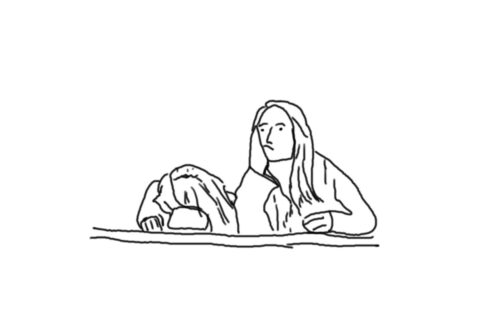
If you think reality is exhaustively physical, then you will probably be either a pessimist or an optimist about naturalistic scientific discovery. You will either conclude that it is highly likely that “folk psychology,” the belief that there are irreducibly mental, non-physical entities of some sort, will be shown to be false, or you will think that though it is possible that folk psychology will be proven false, it is unlikely. The latter position entails the belief that one should continue the naturalistic research program with a physicalist assumption even though you probably won’t be able to prove it. If you’re are an optimist, a bouncy physicalist, you will think it is only a matter of time. You will believe that we are on the brink of discovering some physical explanation for pesky mental properties, qualia and other ontological nuisances.
So, if you are a physicalist, which type are you? To find out, consider the following argument:
(1) Either naturalistic science will vindicate folk psychology or folk psychology is false
So, perhaps you have found your kind of physicalism. Now, another question: are you a dogmatic physicalist? Want to find out? Okay, just consider (1). How likely do you think (1) is? If you are a dogmatist, you will say that (1) is just bang up true, no doubt about it. As William Hasker notices, neither the pessimist nor the optimist wants to rethink (1). That premise is just not up for grabs. Hasker says it “has a status a little lower than that of a theological dogma–perhaps a little lower than that of infallible papal pronouncements, but not by much.”
Now, you might think that you are not dogmatic, but you can’t see how (1) could possibly be false. Okay, let’s run a few more tests to make sure you are the kind of physicalist you think you are. Hasker tells us that there is more than one way to take the argument and that how one takes it shows us a great deal about the temperament of the physicalist. There are two ways to take the argument: modus tollens or modus ponens. Recall the dilemma:
(1) Either naturalistic science will vindicate folk psychology or folk psychology is false
(3) Therefore, folk psychology is false
On Modus Tollens (and by implication) it reads:
(4) If folk psychology is true, then naturalistic science will vindicate folk psychology
(5) Naturalistic science will not vindicate folk psychology
(6) Therefore, folk psychology is false.
Now, if you are a pessimist you have a slight problem. If you think that (6) is highly likely, but you are not as sure about (5), then (4) becomes less likely. That’s because a conditional statement (If p, then q) is only false if the antecedent is true and the consequent is false. Let’s say you take (5) as false. Now (4) is false.
The answer is to shift your position to bouncy. If you are an optimist about naturalistic science then you can be as confident about (5) as you are about (6). You will have to live with the nagging thought that naturalistic science has no hope of showing anything about folk psychology, but you will have to suppress this belief in direct proportion to the confidence you hold (6). Alternatively, you could lower your confidence in (6). That’s a good plan, by the way, but then you will probably want to revise your assumption and be open to positing all sorts of distasteful entities in your ontology. Living a life like this will be like having your political enemies to dinner every night.
 |
| William Hasker |
Hasker points out that there is another way through and that’s to take the argument the other way. As my old prof, Keith Yandell, once quipped: “one man’s modus tollens is another man’s modus ponens.” So let’s try it the other way.
On Modus Ponens (and by transposition) it reads:
(7) If naturalistic science will not vindicate folk psychology, then folk psychology is false
(8) Naturalistic science will not vindicate folk psychology
(9) Therefore, folk psychology is false
Now let’s see if you can retain your desired pessimism. You are not confident about (8), but think (9) is highly likely. Yup, you’re home free. If (8) turns out false, then you can still hold (9) without adjusting your confidence in it. Again, the only way (7) could be false is if the antecedent turned out true and the consequent false. But on modus ponens you only think that the consequent is true and the the antecedent could be false and that does not make (7) false.
However, of course, you might have to reduce your belief that naturalistic science can tell you everything you need to know. If (8) is highly unlikely and (9) highly likely, then you should start to doubt that the only way to know anything is through naturalistic scientific method. But it turns out that physicalism pretty much entails that you can only find out anything by naturalistic methods. So:
(10) If it is possible that you can know something through non-naturalistic scientific methods, then physicalism is false
(11) It is possible that you can know something through non-naturalistic scientific methods
(12) Therefore, physicalism is false
So, it turns out that the MP version won’t do what you want. What now? Well, there is always optimism. You can drum that up and become part of the optimistic movement: “Go Physicalism!” Now, I’ve read and debated with a few physicalists and am sure this is not the desired outcome. But to avoid these kinds of conclusions there is an immense workload in that in-tray.
Physicalism begins with a desire for simplicity. But it turns out that it ends in complication. The simplest conclusion is that (1), the physicalist dogma, is false. And if (1) is false, then, I think it follows that (12) is true, physicalism is false.
William Hasker, Emergent Self (New York: Cornell, 2001).


